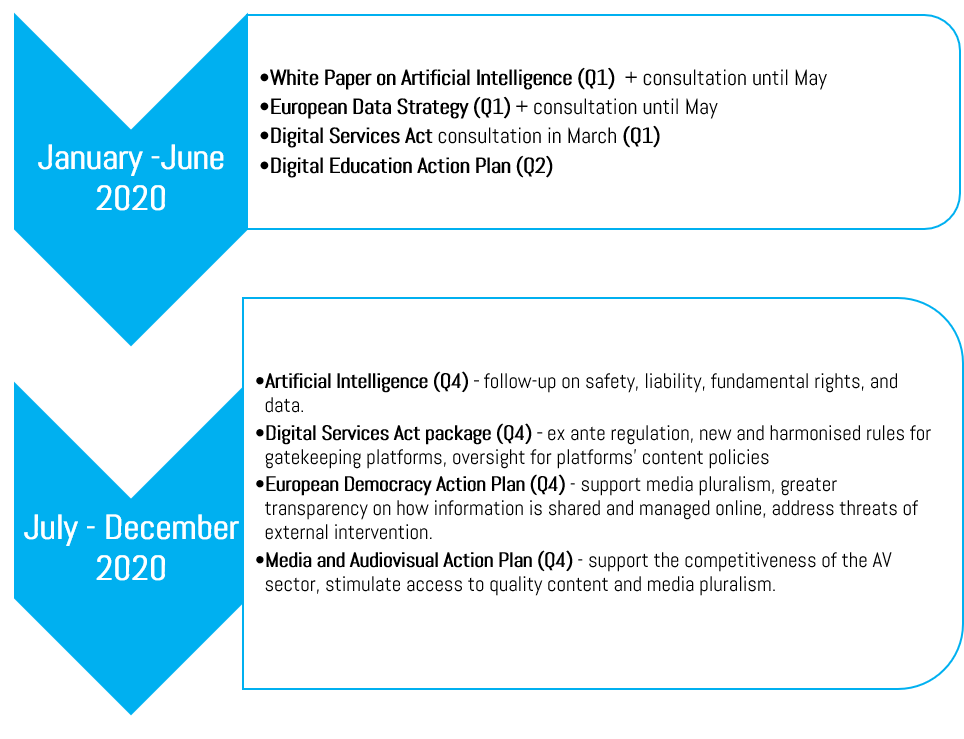A European approach to the digital transformation of society…
On the 20th of February, the European Commission released its digital strategy. Underpinning the EU’s actions vis à vis digitalisation and internet governance are three core pillars: technology that works for the people; a fair and competitive digital economy, and open, democratic, and sustainable society. The EU’s digital strategy indicates the path that Europe needs to take to pursue its own way. Broadly speaking, when it comes to disinformation, the EU strives to strengthen the responsibility of online platforms and clarify rules for online services. With this strategy, the EU aims to fight disinformation online and foster diverse and reliable media content. And, with the outset of AI, it wants to ensure that artificial intelligence is developed in ways that respect people’s rights and earns their trust.
Tackling disinformation: the European regulatory framework
Disinformation covers many policy areas: from foreign interference to inter-EU disinformation campaigns. The financial incentives behind disinformation have also been exposed, not only relating to political issues, but also health and climate change. Among the envisaged regulatory proposals, several are related to disinformation online, from addressing the business model of online platforms to safeguarding quality media. Below are the ways in which the EU will both, directly and indirectly, address the issue of disinformation:
- Digital Services Act package will likely target the business model of online platforms by introducing oversight and enhanced transparency relating to algorithmic content curation and distribution. It is intended to clarify the roles and responsibilities of online platforms and should include measures to address illegal content online.
- Digital Education Action Plan to boost digital and literacy and competences at all levels of education in order to participate effectively in today’s society.
- European Democracy Action Plan to improve the resilience of European democratic systems, support media pluralism, and address the threats of external intervention in European elections. This plan intends to address the need for greater transparency on the ways in which information is shared and managed online.
- White Paper on AI that favours a risk-based, human-centric approach to regulating AI, which encompasses greater oversight, algorithmic transparency, and ethical requirements to mitigate risks to fundamental rights.
- European Data Strategy foresees more control for individuals over their data, which could be achieved by enhancing the portability right for individuals under Article 20 of the GDPR, giving them more control over who can access and use machine-generated data.
- Media and Audiovisual Plan to support the digitalisation of the media sector, foster media pluralism, and reward trustworthy quality media.
So, what’s in the pipeline for 2020?



